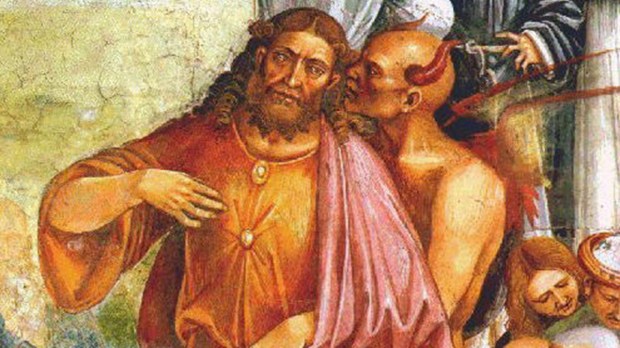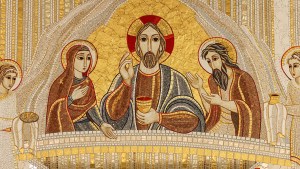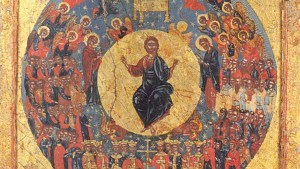As the Church reflects on the second coming of Jesus Christ during the final weeks of Ordinary Time and into the first few weeks of Advent, the topic of the “Antichrist” will inevitably come to the surface.
It is a teaching of the Catholic Church that is highly mysterious, and biblical references do not shed much light on the situation.
Yet, the Church has an official teaching on the Antichrist, explained in detail in the Catechism of the Catholic Church.
A final deception
Before Christ’s second coming the Church must pass through a final trial that will shake the faith of many believers. The persecution that accompanies her pilgrimage on earth will unveil the “mystery of iniquity” in the form of a religious deception offering men an apparent solution to their problems at the price of apostasy from the truth. The supreme religious deception is that of the Antichrist, a pseudo-messianism by which man glorifies himself in place of God and of his Messiah come in the flesh.
CCC 675
As with all aspects of Jesus’ second coming, every age has thought they were living in the “last days.”
St. Thomas Aquinas points out in his Summa Theologiae that the early Christians thought they were living in the “end times” and that the Antichrist was near, if not already there in the form of the Roman Emperors.
[I]t is impossible to fix what amount of such calamities will immediately precede the judgment day or the coming of Antichrist, since even at the time of the Early Church persecutions were so bitter, and the corruptions of error were so numerous, that some looked forward to the coming of Antichrist as being near or imminent.
This is why the Church even mentions that the Antichrist’s deception has been active since the first coming of Christ.
The Antichrist’s deception already begins to take shape in the world every time the claim is made to realize within history that messianic hope which can only be realized beyond history through the eschatological judgment. The Church has rejected even modified forms of this falsification of the kingdom to come under the name of millenarianism, especially the “intrinsically perverse” political form of a secular messianism.
As with the final days of this world, we won’t know for certain whether or not the Antichrist is present in the world. In many ways he has already come and has been with us for centuries.
Throughout this final trial of faith, the key is to stay closely united to Jesus Christ, not wavering in our belief, but trusting that he will lead us to our final home. We may never know who the Antichrist will be, but we do know Jesus Christ and can follow him.



